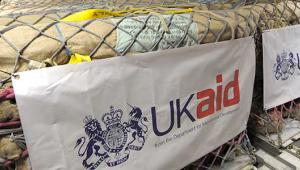DfID said the use of digital technology would improve speed, value for money, reach and impact of its programmes.
The department aims to establish DfID as a global leader in digital technology and development, to have “a bigger, faster and more cost-effective impact on the lives of poor people”, with its Digital Strategy for 2018-2020 launched this week.
International development secretary Penny Mordaunt said in a statement: “Technology gives us the power to include, the power to reach, to inspire, to communicate, to educate, to change.
“Digital technologies offer an unprecedented opportunity to revolutionise the global development system, change lives, transform entire economies, stimulate growth and, ultimately, end reliance on aid.”
DfID also said the expansion of mobile phones and access to the internet in poor countries could offer “unique opportunity” to stimulate growth, jobs and financial inclusion, cut fraud and hold governments to account as well as improve humanitarian emergency response.
It could also improve learning outcomes for children around the world and increase inclusion by providing service access to groups that have previously been marginalised in the developed world, such as girls and women, and people with disabilities.
It would also enhance transparency and traceability of aid funding throughout the delivery chain and deliver real-time feedback and direct engagements with beneficiaries and the UK public.
Mordaunt added: “The new strategy will ensure that our approach to development adapts and keeps pace with technological innovation and change.
“We will use the latest digital technology to push the development system to become more effective, transparent and accountable - enabling us to follow the money, the people and the outcomes.”
The use of digital technology includes satellite data, which helps trigger digitally-enabled payments before the worst effects of drought are felt by people on the ground, DfID said.
But, it was noted, a challenge to this remains that over 4 billion people around the world do not have access to the internet and there is a risk that digital revolution could further exacerbate existing inequalities by making it harder for excluded groups to gain access to services.







